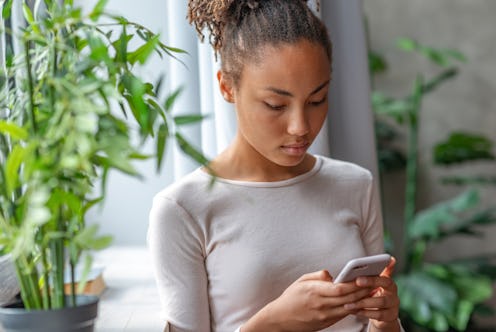Health
How Women Are Bearing The Emotional Brunt Of The Coronavirus Pandemic

Life has changed quite dramatically for many over the last two months. Adapting to not seeing those you’re closest to or going into your place of work is a massive shift. But a new poll has found that women are bearing the emotional brunt of COVID-19 in the UK, with six out of 10 women saying they were finding it hard to stay positive day-to-day, compared with just under half of men.
Earlier in May, The Guardian reported that female academics might be disproportionally affected by lockdown. The new report, conducted by gender equality campaigning charity The Fawcett Society and Ipso MORI, suggests that the implications of the pandemic reach well beyond the academic sphere.
The new poll, initiated as an investigation into how the coronavirus pandemic has affected men and women differently, found found that "women in the UK are bearing the emotional brunt of the coronavirus pandemic, experiencing greater anxiety about its impact than men," per The Guardian. Women were also more likely to have their employment impacted, with a third saying their workplaces had been closed, compared with a quarter of men.
Sam Smethers, the Fawcett Society's chief executive, said, “Women are bearing the brunt of the emotional and financial fallout. Government needs to take a gendered approach as we lift the lockdown and begin to turn our attention to how we emerge from this crisis. One thing is certain, an economy which leaves women and girls behind will fail to recover at all.”
As well as — or perhaps because of — emotionally struggling with lockdown and its implications, 44% of women said they had contacted someone lonely or vulnerable, compared with just 33% of men. While 63% of men had contacted a family member or friend to check they’re OK, the report found that 78% of women had done so, too. Similarly, 21% of women said they’d delivered supplies to someone who was self-isolating compared with 16% of men.
As the government announces measures for some schools to reopen and ease the lockdown, women are more likely to be uncomfortable with using public transport, sending children back to school, shopping, or going to large gatherings. Women are more likely to have adhered to social distancing, too.